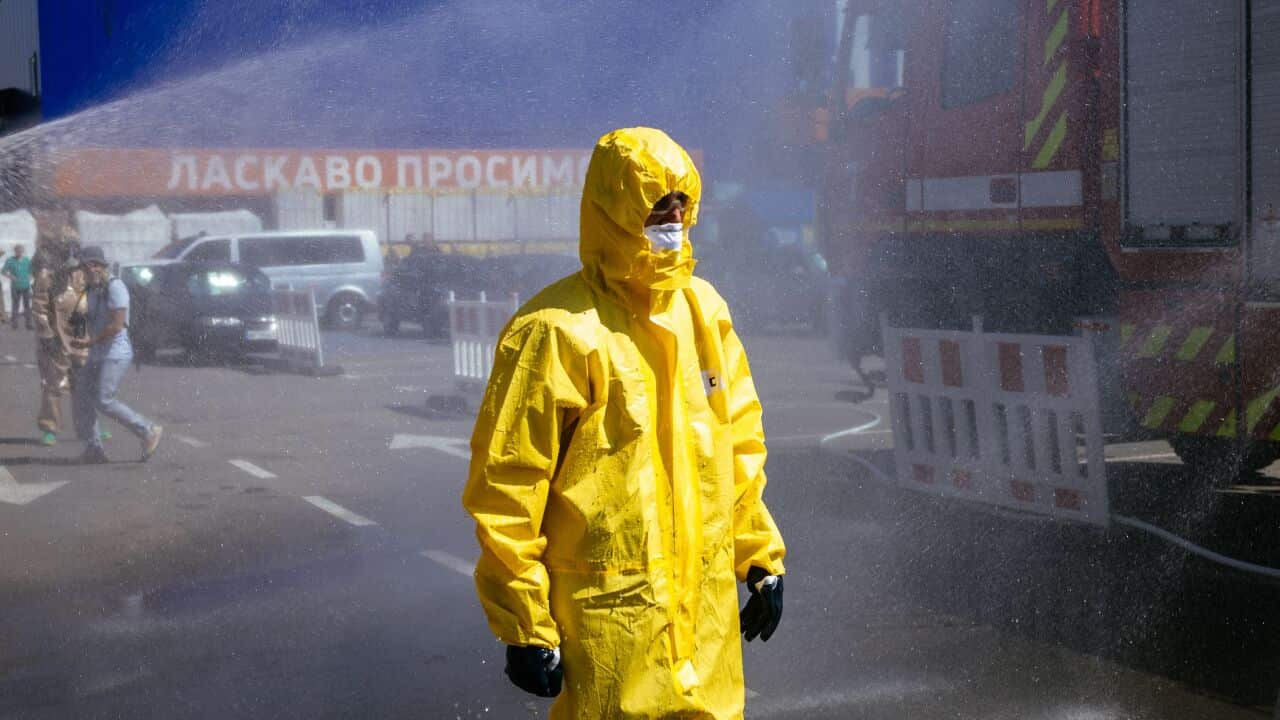European Union members Lithuania, Latvia and Estonia have agreed to restrict the entry of Russian citizens travelling from Russia and Belarus, their foreign ministers say.
The three Baltic nations expect the entry ban to be in place by the middle of September, after it gets formal approval from the national governments, Latvian Foreign Minister Edgars Rinkevics said on Wednesday.
"In the last couple of weeks and months, the border crossing by Russian citizens holding Schengen visas have dramatically increased," he told a press conference in Lithuania.
"This is becoming a public security issue, this is also an issue of a moral and political nature."
The countries will turn back all Russian citizens with visas to enter the EU's Schengen open border area. Exceptions will be made for humanitarian and family reasons, lorry drivers, diplomats.
Direct flights between Russia and the EU were cancelled after , leaving few options for Russians to travel into the union.
The scheme would be the first of its kind in the European Union. Estonia has had a softer ban in place since 18 August, barring the entry only of Russians holding Schengen visas issued by Estonian authorities.
Finland, which also borders Russia, is not joining the ban due to legal uncertainty over whether it can refuse Russian nationals with Schengen visas issued by other European nations, Finnish Foreign Minister Pekka Haavisto told the briefing.
"Can you actually cancel the whole Schengen principles? This is, at the moment, still unclear," he said.
Ukraine considering shutting down Zaporizhzhia nuclear plant
Ukraine is looking at the option of shutting down its Russian-occupied for safety reasons and is worried about the reserves of diesel fuel used for backup generators, Kyiv's top nuclear safety expert said on Wednesday.
The imperilled facility - Europe's largest nuclear power plant - remains disconnected from the Ukrainian grid after shelling cut its external power lines. risking a nuclear disaster.
"The option of switching off the station is being assessed, if conditions necessitating the station to be switched off arise," Oleh Korikov, acting head of Ukraine's State Nuclear Regulatory Inspectorate, told a news briefing by video link.
Mr Korikov said the facility was supplying its own electricity needs, but that backup diesel generators would have to be fired up if it remained disconnected, though he gave no time frame for that eventuality.
He said it was extremely difficult to replenish the reserves of diesel because of Russia's invasion. Moscow's troops captured the plant in early March but it is still operated by Ukrainian technicians.
"We could potentially reach a situation where the diesel runs out, which would cause an accident involving the damage of the active zones of the reactors, which would cause the expulsion of radioactive substances into the environment," Mr Korikov said.
"This would have consequences not only for the territory of Ukraine, but also cross-border consequences," he said.
Shutting down the vast, six-reactor nuclear plant would pile further strain on Ukraine which is already bracing for a winter of energy shortages as the war rages on in its east and south.



